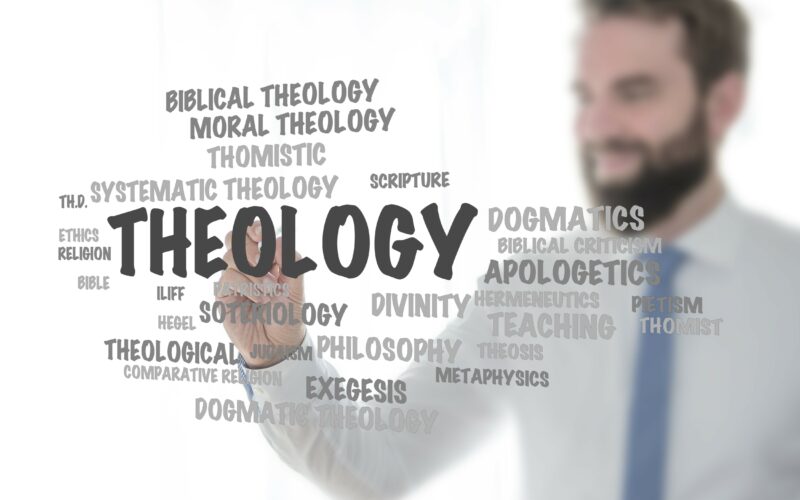Studying theology, the critical examination of religious faith, practice, and experiences, is not just a pathway to religious and spiritual understanding but also a journey that equips individuals with a diverse set of essential skills.
These skills are invaluable in both personal growth and professional development. Institutions like Hillsong College, renowned for their comprehensive theology programs, play a pivotal role in nurturing these competencies.
This article explores the key skills you can gain from studying theology. Continue reading to learn more.
Theology explained
Theology is the study of the divine, religious beliefs, and practices, focusing on understanding the nature of God, spiritual humanity, and the ethical dimensions of religious teachings. It encompasses various disciplines, including Biblical studies, which interprets sacred texts; Systematic theology, which articulates faith coherently; and Historical theology, exploring the evolution of religious ideas over time. Theology also examines moral and ethical decision-making within religious frameworks, practical applications of faith, and comparative studies across different traditions.
This academic and spiritual pursuit aims to delve into existential questions, the moral obligations of humans, and the nature of the divine across cultures. Theology is pursued within specific religious traditions or from a comparative perspective, fostering interfaith understanding and dialogue. It serves as a pathway to personal spiritual exploration and offers insights relevant to various professional and personal contexts, blending academic discipline with a quest for deeper existential understanding.
Who should study Theology?
Theology is an ideal pursuit for individuals with a deep curiosity about the nature of the divine, the complexities of religious beliefs, and the impact of faith on human behavior and society. It appeals to those seeking to deepen their own religious faith or to serve in religious leadership roles such as clergy, pastors, rabbis, or imams, offering the foundational knowledge and critical thinking skills necessary for these paths.
Additionally, it attracts scholars and educators interested in exploring and teaching about the historical, cultural, and philosophical aspects of religion.
People with a passion for engaging with life’s big questions, such as the meaning of existence, morality, and the ethical implications of religious teachings, will also find theology enriching. The field is equally valuable for those working in interfaith dialogue, social work, counseling, and other sectors that benefit from a deep understanding of diverse belief systems and the ability to navigate complex ethical dilemmas.
Ultimately, theological studies is for anyone eager to explore the intersections of faith, culture, and human experience on a profound level.
Skills to acquire through theological studies
- Critical thinking and analytical skills
Theology encourages students to engage with complex texts, doctrines, and ethical dilemmas, fostering an environment where critical thinking and analytical skills are paramount. Students learn to evaluate arguments, discern underlying assumptions, and construct well-reasoned conclusions.
This analytical prowess is beneficial in any field, promoting a thoughtful approach to problem-solving and decision-making.
- Cultural awareness and sensitivity
Theological studies often involve the exploration of diverse religious traditions and cultural contexts. This exposure broadens students’ horizons, enhancing their cultural awareness and sensitivity. Graduates emerge with a deeper understanding of global perspectives, an essential skill in our increasingly interconnected world, facilitating more effective communication and collaboration across cultural boundaries.

- Communication skills
Theology students regularly engage in discussions, presentations, and writing assignments on complex subjects. This process hones their ability to articulate thoughts clearly and persuasively, both orally and in writing. Effective communication is a cornerstone of leadership, making this skill highly valuable in any professional setting.
- Empathy and ethical reasoning
Studying various religious beliefs and ethical frameworks deepens students’ capacity for empathy. They learn to see the world from different perspectives, fostering a compassionate approach to interpersonal relationships. Moreover, theological education emphasizes ethical reasoning, equipping students with the ability to navigate moral complexities and make principled decisions.
- Research skills
Theology requires rigorous research, from historical texts to contemporary issues. Students develop strong research skills, learning how to gather, evaluate, and synthesize information from various sources. These skills are transferable to any field that values evidence-based analysis and informed decision-making.
- Leadership and teamwork
Many theology programs, including those at institutions like Hillsong College, incorporate practical leadership training and group projects into their curriculum. Students learn to lead with integrity, inspire others, and work effectively in teams. These skills are essential for any role that involves guiding others or collaborating towards common goals.
- Adaptability and problem-solving
The study of theology often involves navigating complex texts and ideas, requiring students to be adaptable and creative in their approach. This fosters a flexibility of mind and a knack for problem-solving, skills that are crucial in a rapidly changing world.
- Self-reflection and personal development
Theology is as much a journey inward as it is an academic pursuit. Students are encouraged to reflect on their beliefs, values, and life goals, leading to significant personal development. This introspective skill enhances emotional intelligence and contributes to lifelong learning and growth.
- Understanding of human behavior and motivation
Through the study of religious texts and practices, students gain insights into human behavior and motivation. This understanding is invaluable in fields such as psychology, counseling, social work, and any profession that requires empathy and interpersonal skills.
- Resilience and perspective
Finally, theology students often engage with challenging questions and existential dilemmas. This engagement builds resilience and provides a broader perspective on life’s challenges and uncertainties. Graduates are better equipped to face adversity with grace and to offer meaningful contributions to their communities.
Conclusion
Studying theology, as offered by institutions like Hillsong College, is not just about religious education. It is an immersive experience that cultivates a wide range of skills essential for both personal fulfillment and professional success. Whether in academia, the nonprofit sector, business, or beyond, the competencies gained from a theological education are universally applicable and deeply valuable.

